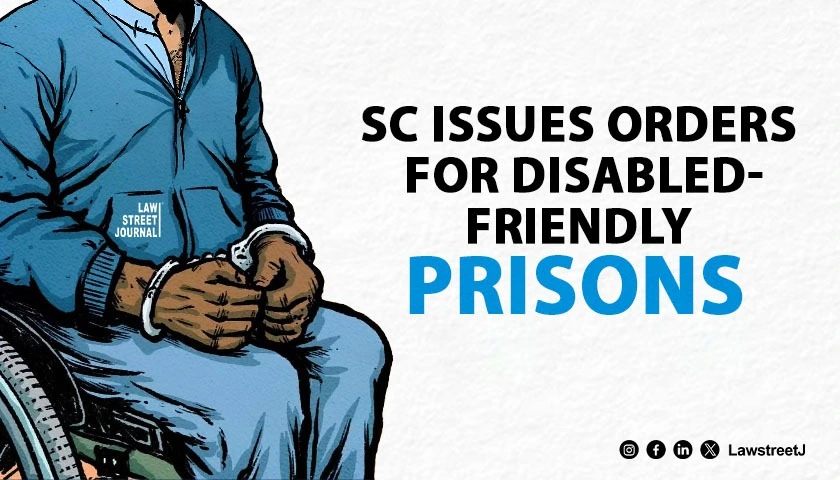NEW DELHI: The Supreme Court has said that lawful incarceration does not suspend the right to human dignity, and inaccessibility and denial of basic care are not mere administrative lapses, they amount to violations of fundamental rights enshrined under Articles 14 and 21 of the Constitution
The top court directed jail authorities to identify prisoners with disabilities at the time of admission and equip all prisons with disability-friendly infrastructure.
A bench of Justices J B Pardiwala and R Mahadevan said failure to meet the obligations by the state authorities inflicts disproportionate suffering on disabled prisoners and betrays the constitutional role of the state as a custodian, not a tormentor, of those it detains.
The court pointed out the punishment handed down to a convict lies only in the restriction of liberty, not in the denial of humane treatment or reasonable accommodations.
The bench said that while modern penological principles advocate rehabilitation over retribution, the current prison infrastructure and operational systems in India remain grossly inadequate, especially when it comes to meeting the needs of prisoners with disabilities.
The court found most state prison manuals remain outdated and uninformed by developments in disability law and rights-based discourse.
"They frequently conflate sensory or physical disabilities with mental illness or cognitive decline, thereby eroding the distinct legal right to reasonable accommodation. This conflation promotes harmful stereotypes and obstructs disabled inmates from claiming their lawful entitlements," the bench said.
The court said prison authorities are under a duty to coordinate with public healthcare systems to ensure uninterrupted care, and logistical or financial limitations cannot be cited to justify a withdrawal of this obligation.
The bench, however, said, while persons with disabilities constitute a particularly vulnerable class and are entitled to reasonable accommodations under domestic law and international conventions, the mere non-supply of preferred or costly food items cannot ipso facto be treated as a violation of fundamental rights.
The bench said the right to life under Article 21 of the Constitution undoubtedly extends to all prisoners, including those with disabilities.
"However, this does not confer a right to demand personalised or luxurious food choices. The state must ensure that every inmate, including those with disabilities, receives adequate, nutritious, and medically appropriate food, subject to medical certification," the bench said.
In its directions, the court ordered that each prisoner should be allowed to declare any disability and provide information about their specific needs. All prison premises shall be equipped with wheelchair-friendly spaces, accessible toilets, ramps, and sensory-safe environments to ensure universal accessibility. All prisons shall designate and maintain dedicated spaces for physiotherapy, psychotherapy, and other necessary therapeutic services, the court said.
The matter arose out of a plea filed by advocate L Muruganantham, who suffered from Becker muscular dystrophy. He challenged an order of the Madras High Court, which granted him just Rs 5 lakh compensation to him. He was imprisoned on a criminal complaint of a person with whom his family had a land dispute.
It said prisons are correctional institutions – not extensions of civil society’s comforts. The non-supply of non-essential or indulgent items does not amount to a constitutional or human rights violation unless it results in demonstrable harm to health or dignity, the court said.
The court held the High Court was justified in enhancing the compensation from Rs one lakh to Rs five lakh.
Among its directions, the apex court directed a state-level access audit of all prisons in Tamil Nadu to be completed within six months by an expert committee comprising officials from the Social Welfare Department, Department for the Welfare of Differently-Abled Persons and certified access auditors. "Periodic audits shall thereafter be conducted and updated regularly by the Harmonised Guidelines and Standards for Universal Accessibility in India (2021)," the bench said.
It stated that the State Prison Manual should be reviewed and appropriately amended within six months to ensure conformity with the RPwD Act, 2016 and the United Nations Convention on the Rights of Persons with Disabilities, 2006 (UNCRPD).
The Director General of Prisons was also instructed to file a comprehensive compliance report before the State Human Rights Commission (SHRC) within three months from the date of the judgment, detailing steps taken in furtherance of these directions.

















